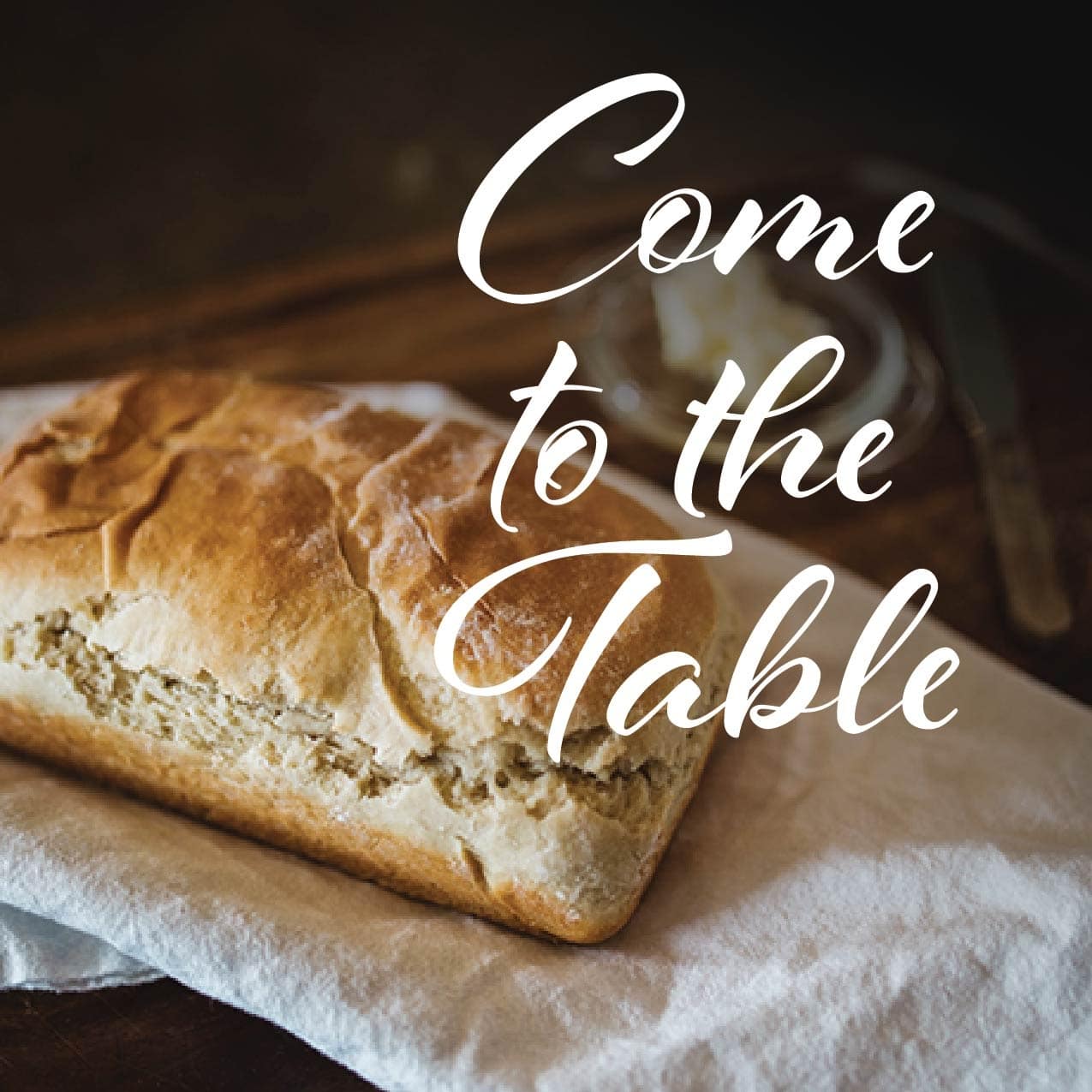When the hour had come, He sat down, and the twelve apostles with Him. Then He said to them, “With fervent desire I have desired to eat this Passover with you before I suffer…” (Luke 22:14-15)
On the night before He was slain, Jesus opened up the Passover Seder to being more than a religious observance; it became a Communion Table in which He invited His disciples to partake of His fullness and life. It was here the truth of our salvation, pre-figured in the deliverance of Israel from Egypt, would be fulfilled. As He broke the matzo, the unleavened Passover bread, and took the cup with them, He reinterpreted the practice that had been going on for centuries, applying it to Himself. Jesus was becoming the ultimate Pesach Lamb.
There in the Upper Room was the last time the Passover would be celebrated before what it prophesied was fulfilled. The next day at Calvary, the Lamb was slain, His blood was spilled, and His body broken that there might come deliverance out of the bondage of slavery.
When you and I come to feast at the Lord’s Table, there are great truths for us to celebrate. Open your Bible with me, and let’s think through the implications of Communion.
The Table is a celebration of victory (Rev. 12:10-11)
“This do in remembrance of Me.” It’s the basic text of the Lord’s Table, engraved on the front of it in churches everywhere. In every passage where Jesus was instituting the Lord’s Table, He says that. But for many people, that call to remembrance is interpreted as morose, as if Jesus is telling us, “Remember all the agony I went through for you.” Let me ask you, does that sound like a triumphant Savior?
Consider this: In all the New Testament Gospels where Jesus is introducing this practice, it begins by saying, “And He gave thanks….” Here in Revelation 12, we are prompted to remember Jesus has conquered the power of the enemy. What the Lord is telling us is when we come to His Table is we are to celebrate that, through the Cross, Jesus has given us victory over the Adversary. We are called to remember Him because He’s conquered all the powers of hell. Anybody want to say, “Hallelujah?” That ought to be the spirit of our approach to the Lord’s Table-remembrance of the victory Jesus has accomplished for us.
The Table is a proclamation of redemption (1 Cor. 11:26)
The frequency of the Lord’s Table is left entirely up to the church or individual: “As often as you come…” It doesn’t say how often. I think it can be so frequent it becomes meaningless, or so infrequent you miss the vitality it contributes to believing life. As well, every time I come to the Lord’s Table, I “proclaim” the impact of the Lord’s death, which is my salvation and redemption, and that cost something. By taking the bread and the cup, I proclaim that Jesus purchased life for me. I also proclaim it by partaking with others, for the word “communion” means a “sharing in common.”
The Table is a declaration of dependence (John 6:53)
At the Lord’s Table, we don’t believe the bread becomes meat or the cup turns into blood. Jesus made clear He was talking about a spiritual reality, not a physical one. Yet neither are we saying these are just a piece of bread and a cup of juice. Jesus said there is a working of the Spirit of God that will happen in your life when you partake; a measure of Holy Spirit power will cause His life to nourish you, if you come in with receptivity and understanding. We partake in the recognition that we are dependent upon this life flow to us and among us as believers. We need the Lord, and we need each other.
The Table is a place for examination of self (1 Cor. 11:28-32)
The Lord calls us to the Table as His disciples. It’s one thing to receive Jesus as Savior-to become a believer-and another to grow into a believer who is learning. That’s the definition of a disciple, and it relates to being shaped and accepting disciplines. God’s Word says, “Let a man examine himself…” Why? Because Jesus wants you to have periodic review with Him to see how your life with Him is coming along. The time to do it is at the Table. Because if we judge ourselves, He says, we won’t be judged. But if we don’t correct ourselves, God will.
So, how do you do that? First, confess before the Lord your sin, weakness, doubt or fear. Come before Him and speak your heart. Then, speak what His Word says about that, even if it contradicts what your heart says. You may not feel differently, but sow those words you speak as seed and trust God to bring the harvest out of them. We come to the Table with a need to examine ourselves and see wherever the Lord is drawing us toward a stretch-point of discipleship.
The Table is a place for reception of provision (1 Cor. 11:29-32)
Finally, the Lord calls us to His Table to receive His provision. Verse 29 of this text has often been a source of confusion: “For he who eats and drinks in an unworthy manner eats and drinks judgment [damnation in the KJV] to himself, not discerning the Lord’s body.” Let’s settle this right here and now, who is worthy to come to the Lord’s Table? The answer is, Nobody.
Partaking in a worthy manner means to ascribe the full worth to what Jesus Christ has done to welcome us into the presence of the Father. It has nothing to do with earning a place of value or acceptance. Jesus has made us worthy through His blood and Cross, not by any accomplishment of our works. The full worth of the provision of the Lord’s Table is not only for the forgiveness of sins, but also for every matter in your life. The cup is the testimony that He has paid for everything we need.
Just as Jesus “with fervent desire” called His disciples to come to the Passover feast, so He calls you and me to come to His Table and partake with understanding. We are called to celebrate His victory over the powers of darkness, proclaim His redemptive work in our lives, declare our dependence upon Him and one another, examine ourselves that we might grow as His disciples, and receive every blessing that His sacrifice for us has provided.




